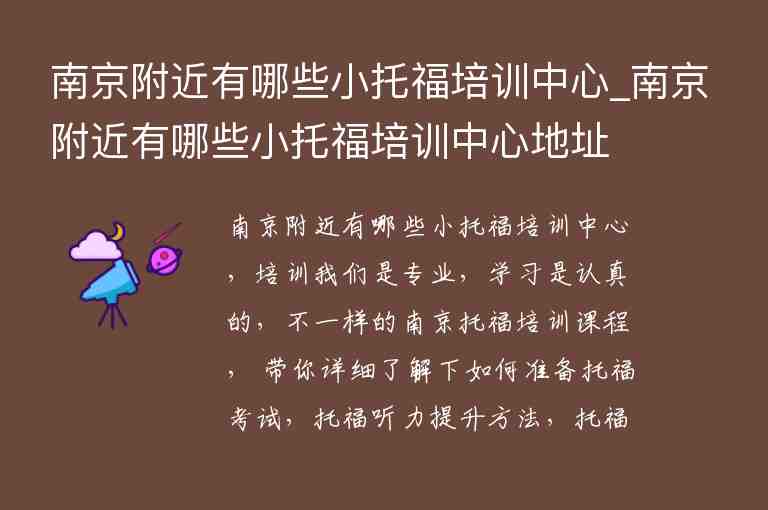你是否曾经遇到过“typhoon”这个词汇,但却不知道它在英语中的意思和发音?或者你想要更深入了解“typhoon”的特征和影响,以及如何在不同场合正确使用它?不用担心,本文将为你解答这些问题。从什么是“typhoon”开始,到如何描述它的特征和影响,再到相关的英语表达和常用词汇,让我们一起来探究这个有趣的话题吧。
什么是“typhoon”?
作为一个留学生,你可能会在英语课上学习到很多天气相关的词汇,比如“sunny”、“rainy”、“windy”等等。但是,当你遇到了“typhoon”这个词时,你可能会觉得有些陌生。那么,什么是“typhoon”呢?
其实,“typhoon”是指热带气旋,也就是我们常说的台风。它通常发生在太平洋和印度洋地区,并且在每年的夏季和秋季都会出现。当然,在不同的地区,人们也可能使用不同的术语来指代这种天气现象,比如“hurricane”、“cyclone”等等。
那么,“typhoon”的英文发音又是什么呢?其实很简单,它的正确发音就是/taɪˈfuːn/。可以看出,“typhoon”的读音和拼写都非常接近中文的“台风”,所以记忆起来也相对容易。
除了正式的定义和发音外,我们还可以通过一些幽默的方式来理解“typhoon”。比如,在英文中,“typhoon”也可以用来形容某件事情或者某个人非常强烈、激烈、迅速地发生或者改变。“He came in like a typhoon”就可以用来形容某个人进来的时候非常有气势,或者某件事情发生的非常快速。这样的用法也让我们更加深入地理解了“typhoon”的含义。
“typhoon”在英语中的意思和发音
Typhoon, a word that may sound unfamiliar to some, is actually a common term used in the English language. It refers to a type of tropical storm that is characterized by strong winds and heavy rain. In this section, we will explore the meaning and pronunciation of "typhoon" in English.
1. What does "typhoon" mean?
According to the Merriam-Webster dictionary, "typhoon" is defined as "a tropical cyclone occurring especially in the western Pacific Ocean." This means that it is a type of storm that forms in the Pacific Ocean and can cause strong winds and heavy rain.
2. How do you pronounce "typhoon"?
The correct pronunciation of "typhoon" is /taɪˈfuːn/. The first syllable rhymes with "tie," while the second syllable rhymes with "loon." You can also listen to the audio pronunciation on various online dictionaries to get a better understanding of how it sounds.
3. Why is it called a typhoon?
The word "typhoon" originated from the Chinese word 大颱風 (dà tāi fēng), which means "big wind." This term was first recorded by Portuguese sailors who encountered these storms while sailing in the Pacific Ocean.
4. How does it differ from other types of storms?
Typhoons are often compared to hurricanes or cyclones, but they have some distinct differences. For one, typhoons occur specifically in the western Pacific Ocean, while hurricanes form in the Atlantic or eastern Pacific Ocean. Additionally, typhoons tend to be larger and more intense than hurricanes.
5. What are some famous typhoons in history?
Some notable typhoons include Typhoon Haiyan, which devastated parts of Southeast Asia in 2013, and Typhoon Hato, which caused significant damage in Hong Kong and Macau in 2017. These storms serve as a reminder of the destructive power of typhoons and the importance of being prepared for them.
In conclusion, "typhoon" is a word that carries significant meaning in the English language. Its pronunciation may seem tricky at first, but with practice, you'll be able to say it like a pro. Remember to stay safe and informed during typhoon season, and always be prepared for any potential storms
如何用英语描述“typhoon”的特征和影响
1. What is a typhoon?
A typhoon is a type of tropical cyclone that occurs in the western Pacific Ocean. It is known by different names in different parts of the world, such as hurricane or cyclone.
2. Characteristics of a typhoon
- Strong winds: Typhoons are known for their strong winds, which can reach speeds of over 200 km/h.
- Heavy rainfall: Typhoons are also accompanied by heavy rainfall, which can lead to flooding and landslides.
- Eye of the storm: Like other tropical cyclones, typhoons have a calm and clear center called the "eye", surrounded by intense winds and rain.
- Large size: Typhoons can be hundreds of kilometers wide, making them much larger than other types of storms.
3. Impact of a typhoon
- Destruction: The strong winds and heavy rainfall from a typhoon can cause significant damage to buildings, infrastructure, and crops.
- Loss of life: Unfortunately, typhoons can also result in loss of life due to their destructive nature.
- Disruption of daily life: As typhoons often bring heavy rain and strong winds for several days, they can disrupt transportation, communication, and other daily activities.
- Economic impact: The damage caused by typhoons can have a significant economic impact on affected areas.
4. How to prepare for a typhoon
- Stay informed: Keep track of weather updates and warnings from local authorities to know when a typhoon may hit your area.
- Stock up on supplies: Make sure you have enough food, water, and other necessities to last through the storm.
- Secure your home: Prepare your home for strong winds by securing loose objects and boarding up windows if necessary.
- Evacuate if necessary: If you live in an area prone to flooding or landslides, it may be safer to evacuate to a designated shelter.
5. Conclusion
In conclusion, a typhoon is a powerful and destructive tropical cyclone that can have a significant impact on the affected areas. It is important to stay informed and be prepared for these storms to minimize their effects
如何在不同场合正确使用“typhoon”这个词汇
1. 在日常对话中使用:“Typhoon”是指热带气旋,通常在英语对话中,我们可以用“typhoon”来指代“台风”。比如当你的外国朋友问起你家乡的气候情况时,你可以说:“We often have typhoons in my hometown during summer.”
2. 在新闻报道中使用:如果你正在做一份关于天气的新闻报道,那么在提及台风时,最好使用正式一点的词汇,比如“tropical cyclone”。例如:“The tropical cyclone has caused severe damage to the coastal areas.”
3. 在学术论文中使用:如果你是一名学生或者研究人员,在撰写论文时也会涉及到天气现象。这时候,我们可以使用更专业的词汇来表达台风,比如“tropical storm”。例如:“The study found that the frequency of tropical storms has increased in recent years.”
4. 在旅游指南中使用:如果你是一名导游或者旅游工作者,在为外国游客介绍景点时也会遇到台风这个词汇。这时候,我们可以用“typhoon”来提醒游客注意天气情况,并给出相应的安全建议。例如:“Please be aware that there may be typhoons during your visit, so make sure to check the weather forecast and follow any safety precautions.”
5. 在社交媒体中使用:如今,社交媒体已经成为人们分享生活的重要平台。如果你想在社交媒体上发布一条关于台风的信息,可以使用更有趣的表达方式,比如“typhoon season”或者“typhoon warning”。例如:“It's typhoon season again, don't forget to stock up on food and water!”
其他与“typhoon”相关的英语表达和常用词汇
1. Hurricane - In the United States, typhoons are referred to as hurricanes.
2. Cyclone - In Australia and India, typhoons are called cyclones.
3. Tropical Storm - A typhoon is also known as a tropical storm in some parts of the world.
4. Tempest - This is an old-fashioned word for a strong, violent storm, often used to describe typhoons.
5. Whirlwind - Another term for a typhoon that emphasizes its strong winds and rotational motion.
6. Super Typhoon - This refers to a very intense and powerful typhoon with wind speeds exceeding 240 km/h (150 mph).
7. Typhoon Season - The period of time when typhoons are most likely to occur in a particular region.
8. Eye of the Storm - The calm center of a typhoon where there is little to no wind and clear skies can be seen.
9. Storm Surge - The sudden rise in sea level caused by a typhoon's strong winds pushing water towards the shore.
10. Typhoon Warning/Watch - An official announcement issued by meteorological agencies to warn people about an approaching typhoon.
So there you have it, 10 other ways to say "typhoon" in English! Remember, no matter what it's called, always stay safe and prepared during these powerful storms
我们了解到“typhoon”是指热带气旋,它在英语中的发音是/taɪˈfuːn/。在描述“typhoon”的特征和影响时,我们可以使用诸如“powerful”, “destructive”和“devastating”等形容词。在不同场合,我们可以用“typhoon”来描述热带气旋,或者使用“typhoon season”来指代热带气旋季节。此外,与“typhoon”相关的常用词汇还有“hurricane”, “cyclone”和“tropical storm”。作为网站的小编,我希望本文能够帮助大家更好地理解并正确使用这个词汇。如果你想了解更多关于自然灾害的英语表达,欢迎继续关注我们的网站!



